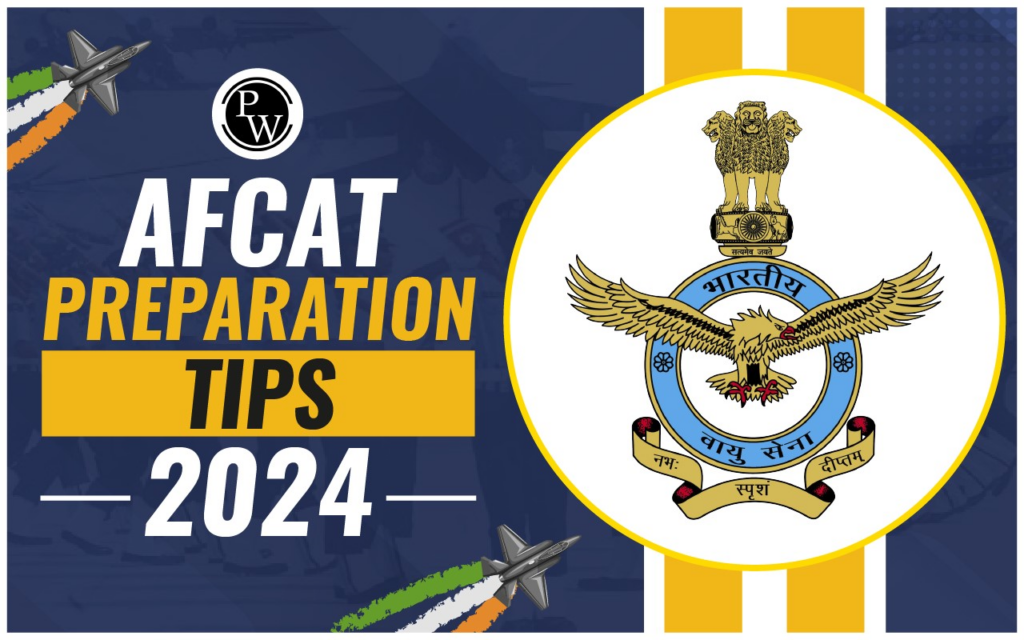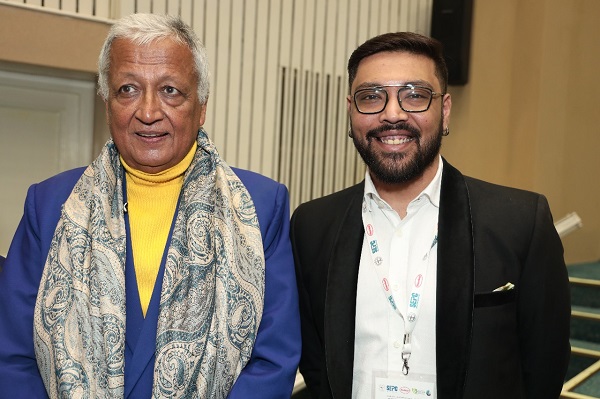AFCAT Exam Pattern 2024: Indian Air Force (IAF) officially releases AFCAT exam pattern to help students understand the structure of the exam. Understanding the AFCAT exam pattern enables the students to know the sections from where questions are asked in the exam. By going through the AFCAT exam pattern, candidates will also know the total marks, marking scheme, time duration, and question paper pattern. According to AFCAT exam pattern 2024, candidates are required to solve 100 questions, depending on whether they are trying for a technical or non-technical branch. According to AFCAT Exam Analysis, the overall difficulty level of the exam is moderate. Read below for more details on the exam pattern of AFCAT.
AFCAT Exam Pattern 2024
AFCAT and EKT exams are conducted in computer-based mode. Engineering Knowledge Test (EKT) is conducted for candidates who opt for Ground Duty (Technical) branch. The language of the exam is English. A total of 100 questions are asked in the AFCAT exam while EKT carries 50 questions. Candidates get two hours to solve AFCAT paper while 45 minutes for EKT. The test paper of AFCAT comprises questions from General Awareness, Verbal Ability in English, Numerical Ability, Military Reasoning, and Aptitude test. EKT comprises questions from Mechanical, Computer Science, and Electrical & Electronics. The difficulty level of AFCAT syllabus is of graduation level. The total marks allotted to AFCAT are 300 while EKT carries 150 marks.
AFCAT exam pattern highlights the overall structure of the exam such as number of sections, weightage of topics, time duration, total marks, marking scheme and many more. Candidates should prepare as per the exam pattern so that they get familar with the exam process.
Also Read:
AFCAT Exam Pattern
Candidates can check below the highlights of the AFCAT exam pattern.
| Parameters | Details |
|---|---|
| Mode of exam | Online |
| Number of sections | AFCAT: FourEKT: Three |
| Number of questions | AFCAT: 100EKT: 50 |
| Maximum marks | AFCAT: 300EKT: 150 |
| Type of questions | Objective type |
| AFCAT Paper Duration | Two hours |
| Language of paper | English |
AFCAT Exam Pattern for Online Test
AFCAT exam pattern for online test is given below:
- AFCAT online test is divided into four sections
- The question paper of AFCAT comprises a total of 100 questions
- The maximum marks allotted for AFCAT are 300
- All questions asked in the AFCAT and EKT exams are objective type, having multiple options
- The question paper is made available in English only
- Candidates need to secure the minimum qualifying marks to qualify for the exam
The structure of AFCAT exam pattern is given below.
| Subject | Exam Duration | No of Questions | Maximum Marks |
|---|---|---|---|
| General Awareness | 02 hours | 100 | 300 |
| Verbal Ability in English | |||
| Numerical Ability | |||
| Reasoning and Military Aptitude Test |
How Many Papers are in AFCAT?
There are total of four papers in AFCAT according to AFCAT Exam Pattern which includes General Awareness, Verbal Ability in English, Numerical Ability and Reasoning and Military Aptitude Test. AFCAT paper duration is 150 minutes i.e two hours. Candidates need to score between 140 to 190 marks out of 300 in AFCAT exam.
Which Subjects are included in AFCAT exam?
According to AFCAT exam pattern, the subjects included in the exam are General Awareness, Verbal Ability in English, Numerical Ability and Reasoning, and Military Aptitude Test.
AFCAT Exam Pattern for EKT
The EKT exam is conducted for 45 minutes. The test paper carries questions from subjects such as Mechanical Engineering, Computer Science Engineering, and Electrical & Electronics Engineering. EKT paper carries a total of 50 questions. The maximum marks allotted for EKT exam are 150
The structure of EKT exam pattern is given below.
| Subject | Time | No. of Questions | Maximum Marks |
|---|---|---|---|
| Mechanical | 45 minutes | 50 | 150 |
| Computer Science | |||
| Electrical & Electronics |
AFCAT Exam Pattern for Technical Branch
The structure of AFCAT exam pattern for Technical branch is given below.
| Section | Questions | Marks | Time |
|---|---|---|---|
| Reasoning and military aptitude test | 35 | 105 | 2 Hours |
| Verbal ability in English | 30 | 90 | |
| Numerical ability | 15 | 45 | |
| General awareness | 20 | 60 | |
| Mechanics/ Computer science/ Electrical and electronics | 50 | 150 | 45 min |
AFCAT Exam Pattern for Non-Technical Branch
Candidates who apply for ground duty (non-technical branches) should be aware of the AFCAT exam pattern for non-technical branch. The structure of the non-technical branch is given below.
| Section | Questions | Marks | Time |
|---|---|---|---|
| Reasoning and military aptitude test | 35 | 105 | 2 Hours |
| Verbal ability in English | 30 | 90 | |
| Numerical ability | 15 | 45 | |
| General awareness | 20 | 60 |
AFCAT Exam Time
The online test of AFCAT is conducted for two hours. EKT is held for 45 minutes. AFCAT exam timings are given below:
| Activity | Shift 1 | Shift 2 |
|---|---|---|
| Reporting time | 7.30 am | 12.30 pm |
| Verification of admit card & ID Proof, Biometrics, Photo/ Thumb Impression/ Sign on Attendance Sheet & candidate seating in exam hall | 7.30 am to 9.30 am | 12.30 am to 2 pm |
| Reading of instructions by candidates | 9.30 am to 9.45 am | 2 pm to 2.15 pm |
| AFCAT exam | 9.45 am to 11.45 am | 2.15 pm to 4.15 pm |
AFCAT Marking Scheme
The marking scheme of the AFCAT exam is given below:
- For correct answers, candidates score three marks. The score of candidates is calculated after deducting AFCAT negative marking
- There is AFCAT negative marking. One mark is deducted for every incorrect answer
- No marks are allotted to unattempted questions
AFCAT Exam Pattern: Normalisation Process
AFCAT normalisation of marks is done to adjust the difficulty level of the question paper held across various sessions. This is done to ensure transparency in the calculation of scores.In order to rationalise the marks scored by candidates appearing in different shifts objectively through a statistical method, normalisation scheme is
being implemented as per the following formula:

AFSB SSB Exam Pattern
Candidates qualifying the online test of AFCAT are called for AFSB interview. The AFSB interview is conducted in three stages at different centres-Dehradun, Varanasi, Gandhinagar and Mysuru. At AFSB, candidates need to undergo the following tests inorder to ascertain their suitability and gauge your potential as an Officer in the Indian Air Force.
Stage-I
Officer Intelligence Rating Test along with Picture Perception and discussion test is conducted on the first day. Stage-I test is a screening test and only those who qualify are called for subsequent testing. All Stage-I qualified candidates are subjected to document check to ascertain their eligibility for the branches applied for. Candidates who either do not qualify in Stage-I or do not meet the required eligibility criteria are sent back on the first day itself.
Stage-II
All Stage 1 qualified candidates need to undergo tests as part of their Stage 2 testing during four to five days. Fifth day is for CPSS testing (Flying branch). The following tests are conducted in Stage 2:
- Psychological Tests are written tests that are conducted by a Psychologist
- Group Tests are interactive indoor and outdoor activities which are a combination of mental and physical work
- Interview involves a personal conversation with an Interviewing Officer
- Candidates who have applied for flying branch and have been recommended, will also have to undergo Computerised Pilot Selection System (CPSS) test
For Flying branch
Computerised Pilot Selection System (CPSS) will be administered to recommended candidates only. This is once in a lifetime test. Candidates who failed the CPSS/ PABT in an earlier attempt or a Flight Cadet suspended from flying training at Air Force Academy are not eligible.
Medical Test
Candidates recommended by the Selection Board, are sent for the medical examination either at Air Force Central Medical Establishment (AFCME), New Delhi or Institute of Aviation Medicine, Bengaluru.
AFCAT Syllabus
AFCAT syllabus is given below.
| Subjects | Topics |
|---|---|
| English | Comprehension, Error Detection, Antonyms and Testing of Vocabulary, Idioms and Phrases, Synonyms |
| General Knowledge | History, Civics, Geography, Politics, Art, Culture, Sports, Defence, Basic Science, Environment, Current Affairs |
| Reasoning and Military Aptitude | Spatial Ability, Verbal Ability, Simple Interest Time and Distance, Ratio and Proportion, etc. |
| Numerical Ability | Time and Work, Decimal Fraction, Profit and Loss, Percentage, etc. |
There are some notable modifications in the AFCAT Exam Pattern for 2024, especially with regard to negative marking and the distribution of total scores. These changes reflect a deliberate effort to improve the evaluation procedure by striking a balance between precision and accuracy when gauging candidates’ skills and knowledge. While the change in total scores provides a more accurate picture of candidates’ abilities, the addition of negative grading promotes careful planning and critical thought. As candidates are ready to manoeuvre through this revised pattern, it emphasises the value of careful planning, a calculated approach, and flexibility. The ultimate goal of the AFCAT Exam Pattern for 2024 is to promote a more open and merit-based hiring procedure, which will make it easier to find the best applicants to join the esteemed Indian Air Force.

















Reader Interactions